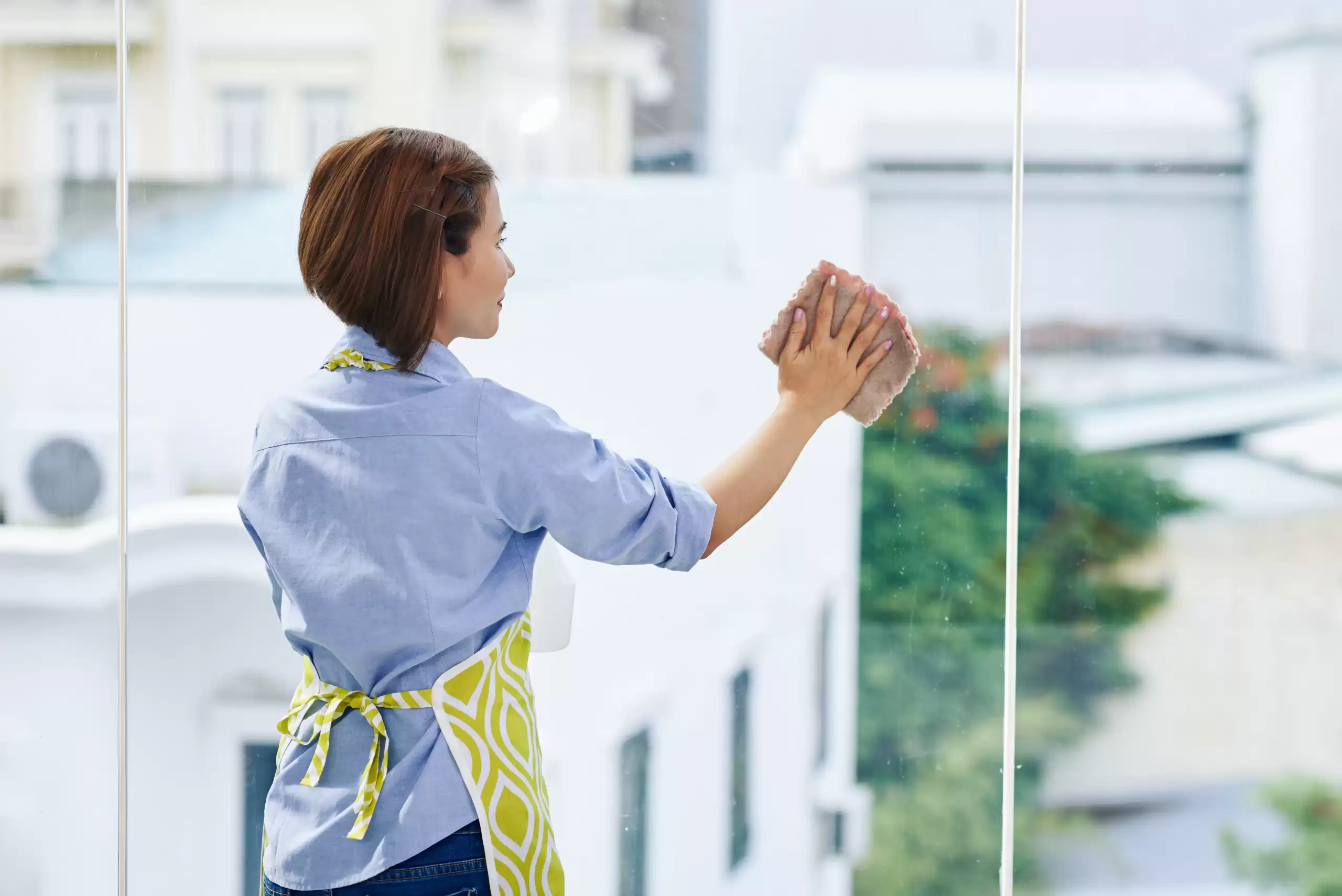Hiring a domestic helper in Singapore transcends the mere selection of a candidate; it represents initiating a vital relationship within the home. Prospective employers must navigate through a series of legal and regulatory frameworks set forth by the Ministry of Manpower, ensuring compliance with work permits and employment laws. This procedural journey is intertwined with the need for cultural integration and understanding, as domestic helpers often come from varied cultural backgrounds. The successful integration of a domestic helper into a household requires a delicate balance of legal compliance, mutual respect, and cultural empathy, laying the foundation for a harmonious and productive domestic environment.
In this article, we will comprehensively explore the process of hiring domestic helpers in Singapore. We will cover the essential regulations outlined by the Ministry of Manpower, delve into the nuances of identifying specific household needs, and provide insights into sourcing suitable candidates. This guide aims to offer practical advice and help potential employers navigate the complexities of this critical decision, ensuring a respectful and mutually beneficial employer-employee relationship.
Understanding Singapore’s Regulations for Hiring Domestic Helpers
Eligibility Criteria for Migrant Domestic Helpers
To be eligible for a Work Permit, domestic workers must meet certain criteria including age, nationality/citizenship, and education requirements. They should be from an approved source country, and have a minimum of 8 years of formal education with a recognized certificate. Employers must ensure that these eligibility requirements are met before hiring a domestic worker.
Legal Requirements and Work Permits
The Ministry of Manpower (MOM) mandates specific legal requirements and work permits for employing MDWs. Employers must adhere to the Employment of Foreign Manpower Act, ensuring all domestic workers have valid work permits and meet the stipulated conditions. The primary permit required for a domestic helper is the Work Permit for Foreign Domestic Worker (FDW). This permit is distinct from other types of employment permits in Singapore, such as the Employment Pass or S Pass, which are typically for foreign professionals, managers, and skilled workers. The Work Permit for FDWs is designed to meet the unique needs of household employment, with conditions and regulations specifically tailored to this sector.
Role of the Ministry of Manpower
The Ministry of Manpower (MOM) plays a critical role in regulating the employment of domestic helpers, ensuring their rights and welfare are protected. This includes adherence to the Employment of Foreign Manpower Act, which sets out the legal framework for employing migrant workers. Additionally, MOM provides various guidelines and resources, including the Settling-in Programme (SIP), which is mandatory for first-time FDWs in Singapore. This programme helps them adapt to working and living in Singapore, covering aspects such as safety, employment conditions, and relationship management.
Identifying Your Household Needs
Assessing the Kind of Maid Services Needed
Employers must carefully assess their household’s unique requirements. This evaluation should include questions like:
1. Childcare Needs:
- Are you looking for someone with specific experience or skills in childcare, such as early childhood education or special needs care?
- How many children need care, and what are their ages and specific needs?
2. Elderly Care Requirements:
- Do you have elderly family members who require assistance? What level of care do they need (e.g., mobility assistance, medication management)?
- Are there specific medical or physical needs that a helper should be trained to handle?
3. General Housekeeping:
- What are your expectations regarding household chores? Are there specific tasks like cooking, cleaning, or gardening that you need help with?
- Do you prefer a helper with certain culinary skills or familiarity with specific cuisines?
Comparing Live-in Helpers and Part-Time Helpers in Singapore
Deciding between hiring a live-in or part-time helper is a significant choice that hinges on various factors such as family lifestyle, privacy needs, and the level of assistance required.
Pros and Cons of Live-in Domestic Helpers
Live-in helpers reside within the employer’s household, offering round-the-clock availability. This arrangement is particularly beneficial for families needing continuous care, like those with young children, elderly family members, or individuals with special needs. The primary advantage of a live-in helper is their immediate availability, especially for unexpected situations or emergencies. However, this option requires employers to provide suitable living accommodations and may lead to lesser privacy for the family. Employers also need to consider the additional responsibility of integrating the helper into their household, respecting their cultural and personal needs.
Pros and Cons of Part-time Helpers
Part-time helpers, in contrast, work for specified hours and do not live in the employer’s home. Part-time helpers are usually local retired women or housewives in Singapore looking for extra income. They are an ideal choice for families that require assistance with specific tasks like cleaning, cooking, or childcare for a few hours a day. This arrangement offers more privacy for the family and requires less commitment in terms of accommodation and day-to-day management. However, the downside is the lack of flexibility, as part-time helpers may not be available outside their working hours or in case of an emergency. Additionally, managing schedules and ensuring consistency in tasks can be more challenging with part-time helpers.

How To Find The Right Domestic Helper in Singapore
Finding a suitable domestic helper is critical in ensuring a harmonious household. Employers have two main options when sourcing candidates: hiring through licensed agencies or opting for direct hire. Each approach offers distinct advantages.
Through Maid Agencies: The Best Housekeeper Advantage
Hiring through a reputable maid agency like Best Housekeeper provides numerous benefits. Agencies take on the burden of administrative tasks, such as work permits and background checks, making the process smoother and more efficient for employers. Best Housekeeper, known for its thorough vetting process, ensures that each domestic worker not only has the necessary skills but also aligns with the employer’s specific needs and family dynamics. This approach significantly reduces the risk of mismatches and ensures a higher success rate in finding the right fit for your household. Additionally, agencies offer valuable ongoing support and advice, making them an ideal choice for those new to hiring domestic helpers.
Direct Hiring: Considerations and Challenges
While direct hiring gives employers more control over the selection process, it comes with its challenges. Employers are responsible for conducting their interviews, background checks, and handling all the legal and administrative responsibilities. This approach requires a significant investment of time and effort to ensure due diligence is conducted. Best Housekeeper has developed a matching tool Best House Keeper | BHK that facilitates efficient direct hiring.
Contract and Employment Terms for Domestic Helpers in Singapore
Drafting a Fair and Legal Employment Contract
A comprehensive employment contract must clearly state the domestic worker’s duties, salary, benefits, and leave entitlements. It’s essential to align with Singapore’s legal standards. This contract serves as a legal agreement between the employer and the domestic worker, ensuring clarity and fairness in the employment terms.
Salary, Benefits, and Leave Entitlements
The salary for domestic workers in Singapore varies based on experience and educational levels Beyond the basic salary, employers are required to provide medical benefits and regular rest days. Compensation for working on rest days should adhere to the Ministry of Manpower’s (MOM) guidelines. Employers should also consider the levy and insurance requirements, which are part of the financial responsibilities when hiring a domestic worker.
Paying for Maid Levy
The levy system is part of Singapore’s broader strategy to manage the number of foreign workers in the country, balancing the need for domestic help with national labour policies. As of 2023, the maid levy in Singapore is generally S$300 per month for the first domestic worker (FDW) hired by an employer. For any additional FDWs, the levy is S$450 per month. However, Singaporeans may be eligible for a concessionary levy rate of S$60 per month if they have a young child, an elderly family member, or a person with a disability in the family. This reduced rate is aimed at easing the financial burden on families who require extra support. Employers are required to pay this levy monthly, and it is usually done through a General Interbank Recurring Order (GIRO). Failure to pay the levy can result in penalties and affect the employer’s ability to hire FDWs in the future.
Consequences of Infringements: Employer Debarment
Employers can be debarred from hiring foreign domestic workers if they commit certain offences under the Employment of Foreign Manpower Act. These infringements include abuse or ill-treatment of the worker, illegal employment, or compromising the worker’s safety and health. The debarment period depends on the severity of the offences and can result in the inability to apply for or renew a Work Permit for a domestic worker.

Living Arrangements and Integration of Helpers into Your Household
Accommodation Requirements for Domestic Helpers
For domestic helpers, providing adequate accommodation is not just a legal requirement but a fundamental aspect of their well-being and job satisfaction. This accommodation should ensure privacy, comfort, and safety. Employers must provide a separate room for the helper whenever possible, or at the very least, a comfortable private space that respects their privacy. This includes a proper bed, storage for personal belongings, and access to bathroom facilities. Since domestic helpers are away from their home countries and families, creating a space where they feel secure and respected is paramount.
Cultural Sensitivity and Creating a Harmonious Living Environment
Understanding the cultural backgrounds of domestic helpers is essential for fostering a harmonious living environment. For example, most domestic helpers in Singapore come from Indonesia, where the predominant religion is Islam. Employers should be mindful of their dietary restrictions, prayer practices, and religious observances. Similarly, helpers from the Philippines might have different cultural practices and might be Christians, thus having different religious holidays and dietary preferences.
Other factors to consider include language barriers, which can be addressed through patience and clear communication. Offering opportunities for the helper to engage in community activities or allowing them to connect with others from their home country can also facilitate a smoother cultural adjustment.
Employers should also be aware of the emotional and psychological adjustment of being in a foreign country and away from family. Regular, open communication, understanding, and empathy go a long way in building trust and a positive relationship. By recognizing and respecting the cultural diversity and needs of domestic helpers, employers in Singapore can create a mutually respectful and supportive household environment that benefits everyone involved.
Make Informed Decisions in Hiring Domestic Helpers in Singapore
In today’s fast-paced Singapore, where busy schedules are the norm, more and more families are turning to the invaluable support of Migrant Domestic Workers (MDWs) to manage their households efficiently. While it’s true that a domestic helper can significantly ease your daily burdens, it’s crucial to remember that these workers are not just helpers but individuals deserving of respect and fair treatment.
The process of hiring an MDW goes beyond simply filling a position in your home. It’s a commitment to creating a mutually respectful and understanding relationship. When selecting a domestic helper, ensuring they align with your household’s needs and values is essential. But equally important is your role as an employer who upholds their rights and welfare, as mandated by Singapore’s Ministry of Manpower (MOM). This includes providing a safe and comfortable living environment, fair wages, reasonable working hours, and regular rest days.
For those ready to take this step, Best Housekeeper is here to assist you. We understand the demands of modern living in Singapore and offer a straightforward, supportive service to help you find the right domestic helper. Our helper agency’s commitment goes beyond matching skills with needs; we advocate for respectful and fair employment practices. Reach out to Best Housekeeper today, and let us help you enhance your household with the perfect domestic helper.


